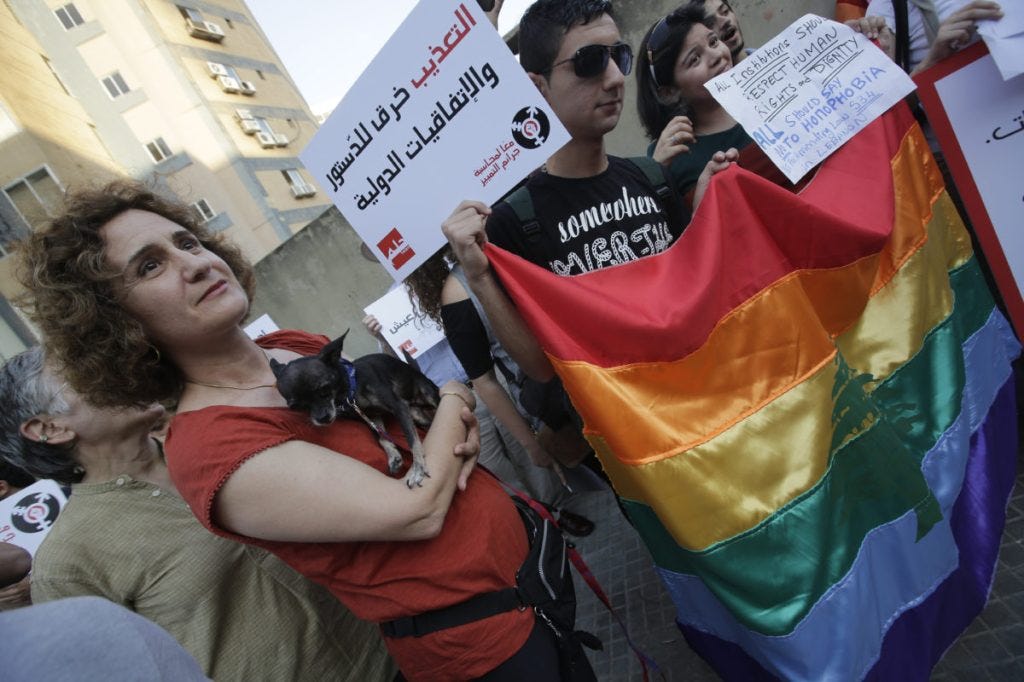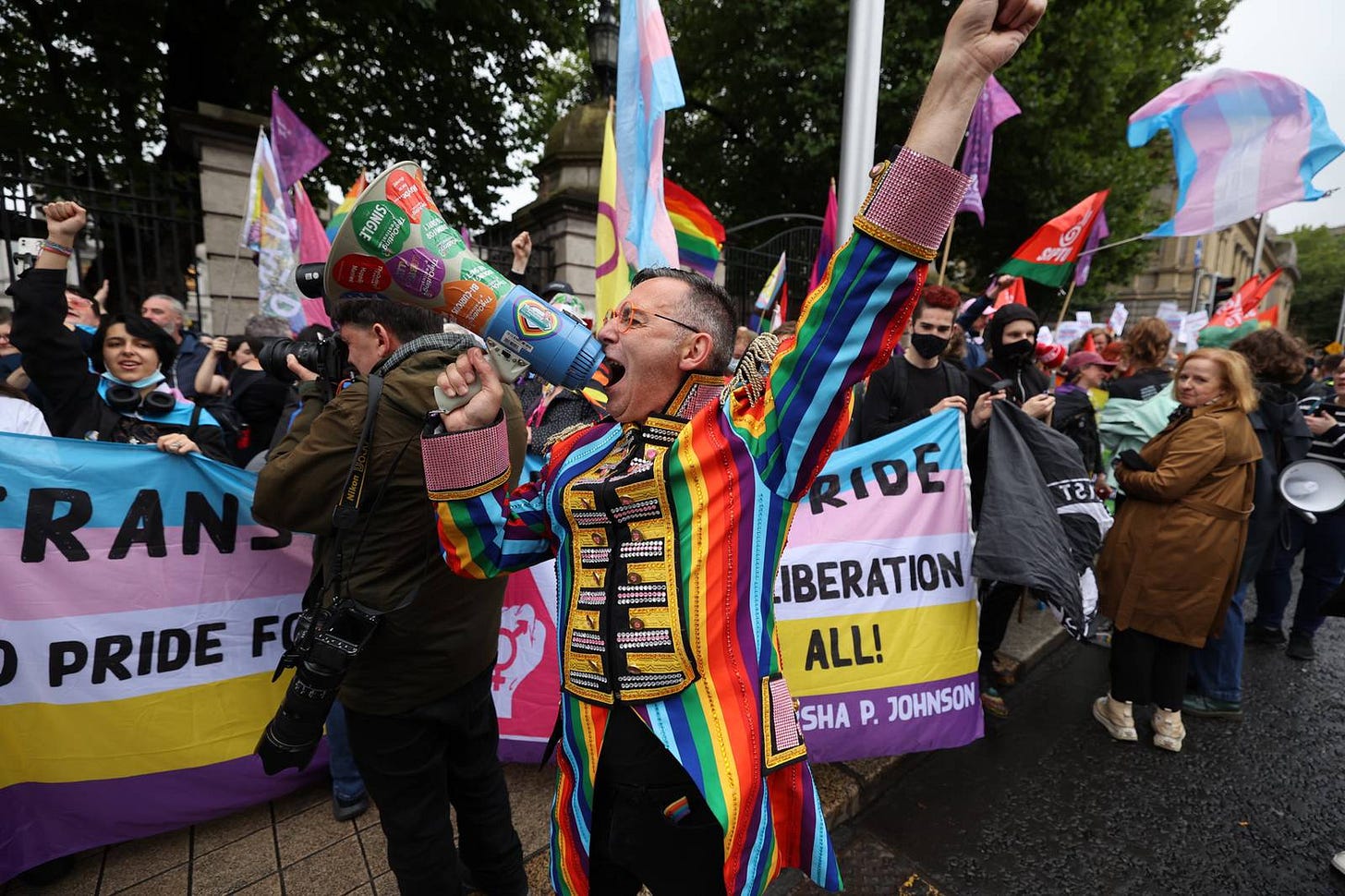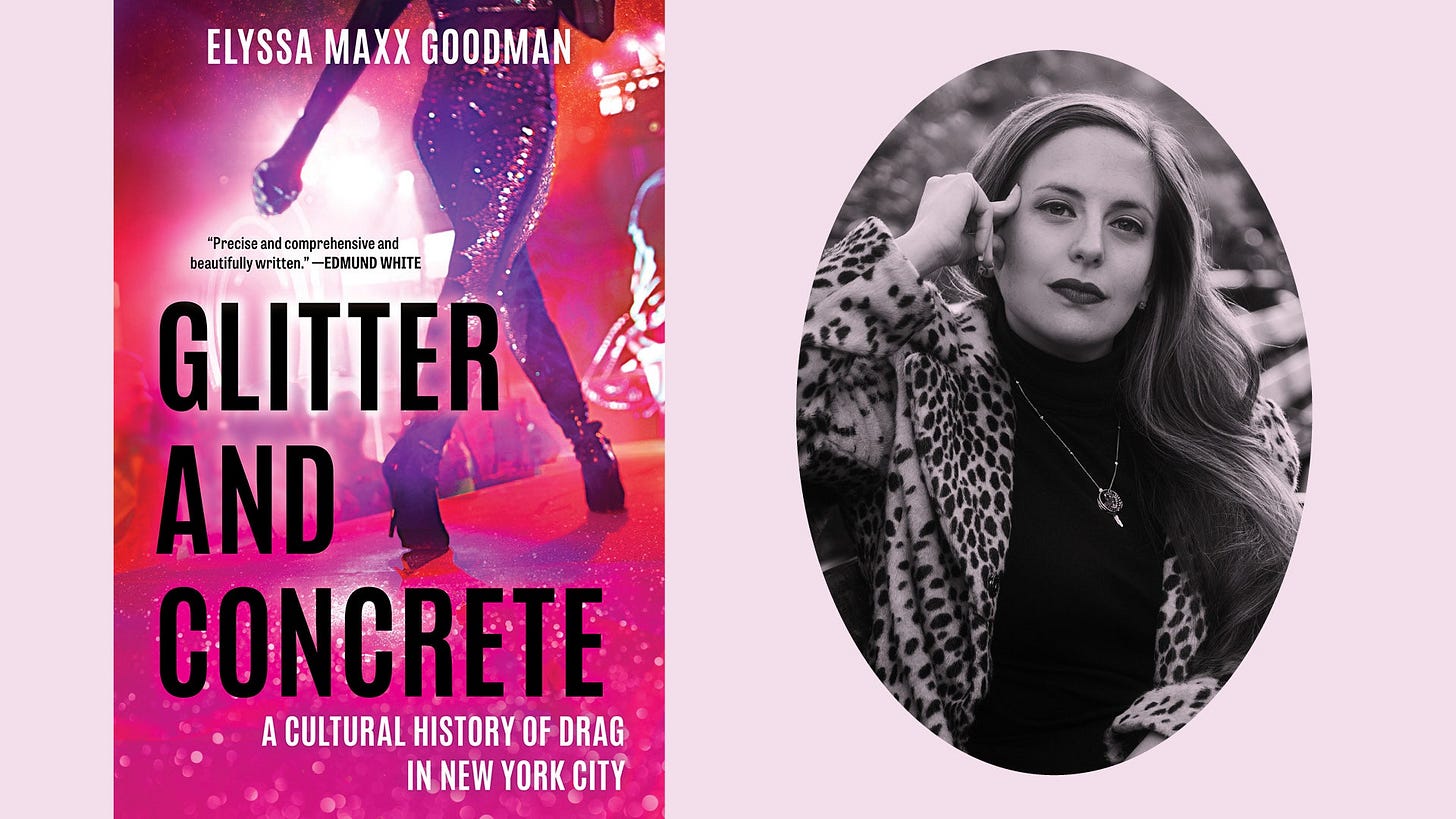Global Roundup: Zimbabwe Women Demand Political Representation, Canada Rallies for Landfill Search, Lebanon LGBTQ+ Community, Ireland Trans Rights Rival Demonstration, Book on Drag’s History in NYC
Curated by FG Contributor Samiha Hossain
Via BNN News
Women groups in Zimbabwe are calling on President Emmerson Mnangagwa to have a gender-balanced cabinet. Mnangagwa appointed his new cabinet last week, retaining many of his old members and including several young members of his ZANU-PF party, including his son, Kudakwashe. More significantly, he gave men the lion's share of ministerial positions — out of the 26 ministers, only six are women.
Madrine Chiku, the chairperson of the Women's Coalition in Zimbabwe, pointed to Section 17 of Zimbabwe's constitution, which calls for the state to promote full gender balance and rectify gender discrimination in Zimbabwean society. She said having a woman in the presidium and more women in the cabinet would have been ideal.
I am not very pleased with the [cabinet] outcome. When we look at the presidium, we do not have any representative. -Madrine Chiku
Linda Masarira, the founder of the opposition Labour, Economists and African Democrats (LEAD), said she is concerned about the absence of a female vice president.
As a pan-African feminist transformation leader, I demand 50-50 in all organs of the state as enshrined in the Constitution of Zimbabwe. Arise, women of Zimbabwe, arise! -Linda Masarir
Mnangagwa, declared winner of August's disputed general election, wants the cabinet to stir Zimbabwe from its economic crisis as he serves his full second and final term. When asked if he felt any pressure from gender activist organizations to increase the number of women in his cabinet, the 80-year-old responded with laughter. According to Alexander Rusero, a politics professor at the Africa University in Zimbabwe, the cabinet is nothing short of power consolidation.
Cambria Harris, daughter of Morgan Harris, has been calling for a search of Winnipeg's Brady Road landfill and the Prairie Green landfill north of the city for the remains of Indigenous women and girls. (Travis Golby/CBC)
The families of Morgan Harris and Marcedes Myran hope their calls to search a landfill for the remains of their loved ones will be heard across Canada. People in at least 17 cities will rally today as part of a day of action organized by Harris's and Myran's families. Missing and murdered Indigenous women has long been an issue activists have been pushing the Canadian government to address.
People are not trash. We need to make sure that we're continuing that momentum and people know the importance of everyone coming together to make sure that we can bring these women home. -Kyra Wilson, Long Plain First Nation Chief
The rallies will push for an immediate search of the Prairie Green landfill north of Winnipeg for the remains of Harris and Myran. Police have said their bodies were dumped there after they were killed. They will also call for a search for an unidentified woman Indigenous leaders have named Mashkode Bizhiki'ikwe, or Buffalo Woman, and Tanya Nepinak, who went missing 12 years ago. Police searched for Nepinak's body at Winnipeg's Brady Road landfill for six days, but she was never found. Calls to search the Prairie Green landfill for Harris's and Myran's remains have been made across the country since the Manitoba government announced it would not fund a search.
There are so many people in support of searching a landfill, and that's not only just Indigenous communities. We have non-Indigenous allies from many different organizations, from many different communities. It's just really beautiful to see everyone come together. -Kyra Wilson
While the Manitoba government has stood firm on the decision not to fund a search, saying it could put workers' safety at risk and affect the case against the man accused of killing the two women, Manitoba Green Party Leader Janine Gibson said that she supports a search, and it could be done in a cheaper and safer way. Gibson also suggested the feasibility report that estimated the search would take up to three years and cost up to $184 million "has been influenced by institutionalized racism and sexism."
Getty Images
The LGBTQ+ community in Lebanon is facing an increasingly hostile crackdown by the country’s political and religious leaders, leading the community to fear for their safety. The increasing wave of hostility in the country has included an attack on a Beirut gay bar by Christian extremist group Jnoud El-Rab (Soldiers of God), homophobic speeches by the country’s leaders, the banning of board game Snakes & Ladders, for apparently having rainbow colours, and the censoring of the Barbie movie.
Despite its conservative laws and negative societal attitudes, Lebanon has long been considered a relatively safe haven for LGBTQ+ people in the Middle East. For instance, Beirut Pride – the only LGBTQ+ Pride in the Arab world – saw 4,000 people march in 2017. However, in recent weeks and months Lebanon’s politicians, religious leaders and vigilante groups have sought to crack down on the freedoms of queer people, which many people see as a distraction from national issues. The country is currently in the grip of a four-year-long economic meltdown – compounded by the COVID-19 pandemic and the deadly explosion at the Port of Beirut, in 2020. Politically, Lebanon has been in a deadlock and without a president for nearly a year, following a dozen failed parliamentary sessions to elect a new head of state.
They take away our rights under the guise of ‘protecting the family unit’, ‘preserving our religious morals and values’, [saying] ‘homosexuality will kill our society’ and ‘this is the west trying to destroy our country by bringing this ideology here’ – and people believe them. It’s not just about queer people. They [Hezbollah, Lebanon’s Shia Islamist political party and militant group] want to limit everybody’s rights. -Amal (not her real name)
Amal asked friends about how the current situation is affecting them – and many are frightened. One told her that she gets “so scared and so anxious” when violent incidents against the community happen, resulting in her avoiding the news altogether. Amal called on people outside Lebanon to donate money to organisations such as LGBTQ+ advocacy group Helem, as a means of helping support the community. Increased international attention on Lebanon’s anti-LGBTQ+ rhetoric could make the country’s leaders more hesitant to take away the community’s rights, she hopes.
Human rights organisations have condemned Lebanon’s increasingly anti-LGBTQ+ rhetoric, with major international agencies and advocacy groups calling on the country to halt its political and social stigmatisation of the community.
The Lebanese authorities must immediately stop creating an environment conducive for discrimination and violence against the LGBTI community to be perpetuated. Crucially, the government should ensure that everyone is protected from violence, regardless of their gender identity or sexual orientation. -Aya Majzoub, Amnesty International’s deputy regional director for the Middle East and North Africa
Pro Trans groups gather at the Dáil ahead of the Let Women Speak event in Merrion Square. Photograph: Nick Bradshaw
Rival demonstrations over trans rights in Dublin’s city centre in Ireland took place this weekend. A group calling itself Let Women Speak and a counter-rally involving trans rights activists were kept apart by a large bank of gardaí and barriers.
Let Women Speak, which was founded in the UK, describes itself as a grassroots gender critical, radical feminism group upholding women’s rights to sex-segregated spaces. They were opposed by a rally involving several organisations including Trans and Intersex Pride, Le Cheile, Mammies for Trans Rights and the Socialist Party along with People Before Profit.
The trans rights activists arrived at the barriers early as the Let Women Speak organisers were getting set up. They chanted “trans rights are human rights” and “trans rights, women’s rights, same rights”.
Speakers used loudspeakers, sirens, chanting and disco music to try and drown out the Let Women Speak rally. Former People Before Profit TD Ruth Coppinger said the young people who had turned out for the rally were not going to allow trans people to be “discriminated against to have hate fomented against them.”
…Our trans brothers, sisters no matter who they are, we have all gathered together to show our support here today. -Eddie McGuinness, rally speaker
McGuinness believed “thousands” had turned out at the counter-protest.
We came together as a community. This is what it is all about. It is about love. As an openly gay, bi man, I couldn’t be who I was in our society for many a year. I was beaten up. Society in 2015 said yes to us. That is what society is all of us. It is about love. What we have done today is come together. There is no hatred in who we are. -Eddie McGuinness
Hanover Square Press: Ben Seagren
Author Elyssa Maxx Goodman chronicles drag’s rebellious history in her new book Glitter and Concrete: A Cultural History of Drag in New York City. Though drag may have slipped into the mainstream in the past decade, Goodman’s landmark book shows that drag has long been a part of not only culture, but people’s everyday lives. Goodman spoke to Them about her book.
Part of the reason I wrote the book in the first place was to let people know that they have roots. That this history is one of creativity and rebellion and resilience and resistance and has been the entire time. And it’s not going anywhere. Having access to your history should be a right and not a privilege. -Elyssa Maxx Goodman
Goodman discusses how she had to edit her book to the last minute with anti-drag fervor on the rise. She had to add to one draft how in New York this past December, Drag Queen Story Hours were being protested in Queens and members of extreme right organizations were showing up to protest it. Goodman notes that these tactics have been present throughout history.
Usually when there’s a moment in culture when men in power feel threatened, drag and marginalized identities are attacked in some way. There’s a pattern over and over and over of that. -Elyssa Maxx Goodman
Goodman says her appreciation of drag has only deepened and became stronger through the process of writing the book. The reason she originally started writing this book was the passing of [drag mother] Flawless Sabrina in November 2017. Goodman wanted to make sure that these stories didn’t get lost.
I want people to be able to recognize that drag is an art form…I hope that, if there’s a person out there reading the book, that they’re able to also feel less alone and know that their history is represented here and it’s not going away. -Elyssa Maxx Goodman
Samiha Hossain (she/her) is an aspiring urban planner studying at Toronto Metropolitan University. Throughout the years, she has worked in nonprofits with survivors of sexual violence and youth. Samiha firmly believes in the power of connecting with people and listening to their stories to create solidarity and heal as a community. She loves learning about the diverse forms of feminist resistance around the world.






